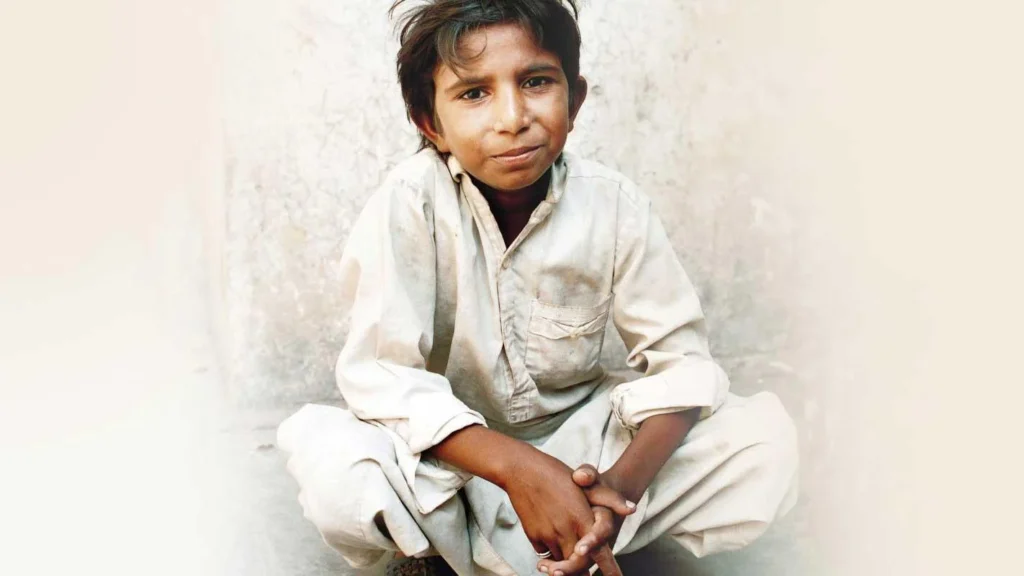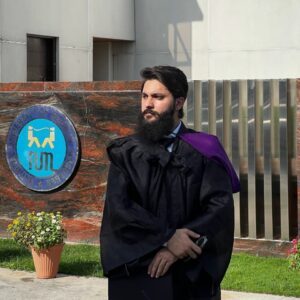In the dusty town of Muridke, near Lahore, a boy was born into poverty on January 1, 1983. His name was Iqbal Masih. He was small in stature, but the fire in his heart would one day shake the conscience of the world. By the time he was 12, Iqbal had become a global symbol of resistance against child labor, a voice so powerful that even his silence, after his tragic death, continues to echo across generations.
A Childhood Sold
Iqbal Masih’s story begins with a cruel transaction. At the age of four, his family, struggling to survive, borrowed 600 rupees from a local carpet factory owner. In return, Iqbal was bonded into labor. This practice, known as “peshgi,” was common in Pakistan’s informal industries, especially in carpet weaving, brick kilns, and agriculture. Iqbal was forced to work up to 14 hours a day, six days a week, tying intricate knots in carpets.
He was beaten if he made mistakes, chained to his loom to prevent escape, and fed just enough to survive. He was denied education, freedom, and childhood. His growth was stunted due to malnutrition and physical strain, making him appear younger than his age. But Iqbal was not broken. He was watching, learning, and waiting.
The Escape and Awakening
At just ten years old, Iqbal Masih made a daring escape from the carpet factory that had enslaved him since he was four. His tiny frame had endured years of forced labor, but his spirit remained unbroken. After fleeing, he found refuge with the Bonded Labor Liberation Front (BLLF), where activist Ehsan Ullah Khan recognized Iqbal’s sharp mind and fierce determination.
For the first time, Iqbal Masih went to school and excelled. But more than academics, he discovered his voice. He began speaking at rallies, sharing his story with raw honesty and courage. His words pierced through the silence: “I am not a machine. I am a human being, and I have rights.” That sentence became a rallying cry.
Iqbal Masih’s awakening was not just about reclaiming his own life; it was about igniting a movement. He understood that his story had power, and he used it to expose the hidden horrors of child labor to the world. His courage inspired journalists to investigate, lawmakers to debate, and communities to mobilize. In just a few years, Iqbal went from being a nameless laborer to a global symbol of resistance. His escape was the beginning, but his awakening was the revolution.
Iqbal Masih: A Global Voice
Iqbal Masih’s activism gained international attention. In 1994, he traveled to Sweden and the United States, where he received the Reebok Human Rights Award. He used the prize money to support education for other freed children. He met senators, journalists, and human rights leaders, urging them to take action against bonded labor.
Despite his age, Iqbal spoke with the conviction of someone who had lived a thousand lives. He exposed the dark underbelly of the global carpet industry, where children were exploited to produce luxury goods for foreign markets. His courage embarrassed governments, pressured corporations and inspired reforms.
The Tragic End
On April 16, 1995, just one day after Easter, Iqbal was shot and killed while visiting relatives in Muridke. He was only 12 years old. The circumstances of his death remain controversial. Some claimed it was a personal dispute. Others, including activists and journalists, believe he was assassinated by those threatened by his activism, possibly members of the carpet mafia or bonded labor networks.
His death sparked global outrage. Vigils were held in multiple countries. Human rights organizations demanded justice. But in Pakistan, the investigation stalled, and no one was ever held accountable. Iqbal’s life was short, but his impact was monumental.
The Legacy of a Child Warrior
Iqbal Masih’s legacy endures far beyond his short life, echoing through classrooms, courtrooms, and global movements. His story became a catalyst for education initiatives, inspiring the creation of schools and literacy programs for children rescued from bonded labor. In Pakistan, his activism helped push legislative reforms aimed at curbing child slavery, though enforcement remains a continuing challenge. Internationally, Iqbal’s name became a rallying cry for anti-child labor campaigns, motivating organizations like Free the Children (now WE Charity) to take root and grow.
His courage transcended borders, reminding the world that even the smallest voice can demand justice. In recognition of his bravery, the Government of Pakistan posthumously awarded him the Tamgha-e-Shujaat (Medal of Bravery), honoring his sacrifice and impact. Today, Iqbal is remembered not just as a victim, but as a warrior, a child who stood up, spoke out, and changed the course of history for millions like him.
Also Read: Musa Khankhel: The Pen that Burned for Truth


